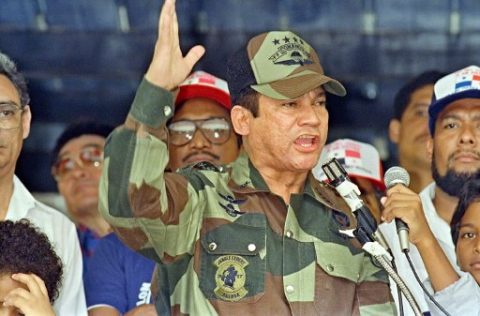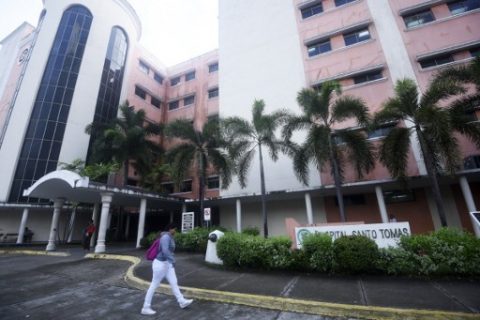
Panama’s former leader Manuel Noriega, ousted from power by United States troops in 1989, and who spent years in prison for drug trafficking and money laundering, has died aged 83, authorities said.
Noriega died Monday in Panama City’s Santo Tomas Hospital, where he had been recovering from surgery in March to remove a brain tumor, and from a subsequent operation to clean up cerebral bleeding.
President Juan Carlos Varela wrote on Twitter that Noriega’s death “closed a chapter in our history.”
The ex-strongman was cremated on Tuesday in a small private ceremony in the capital attended by a handful of friends and family, including his three daughters.
Ruben Murgas, a friend who was director of state radio during Noriega’s reign, said the ashes were given to Noriega’s widow Felicidad.
“It was a farewell as the family wishes,” he told reporters, visibly distressed, at the gates of the crematorium.
He added that no autopsy had been carried out because Noriega passed away in hospital.
The cause of Noriega’s death — which was pronounced around 0400 GMT Tuesday — has not been given.

Noriega had been serving lengthy prison sentences in Panama for murder and forced disappearances during his 1983-1989 dictatorship.
Following years of ill-health that included respiratory problems, prostate cancer and depression, Noriega’s family pleaded with the authorities to let him serve the rest of his sentence under house arrest. But the government rejected their appeals.
CIA agent to US pariah
Born in 1934 to a poor family, Noriega entered Panama’s military at a young age and rose through the ranks to become de facto ruler of a country that hosts the strategic Panama Canal.
Noriega was reportedly recruited onto the Central Intelligence Agency payroll in 1967, the year before he took part in a 1968 coup against then-president Arnulfo Arias.
Noriega supported one of the coup leaders, General Omar Torrijos, who promoted him to head the feared G-2 military intelligence unit.
In 1983, two years after Torrijos’ death in a mysterious plane crash, Noriega took charge of the now-defunct National Guard and became Panama’s de facto ruler.
During his ascent and time in power, Noriega juggled work for the CIA along with relationships with Colombian drug lord Pablo Escobar, Cuba’s Fidel Castro and other foreign intelligence services.
He was toppled in a December 1989 US invasion, the largest such US military operation since the Vietnam war.
He surrendered to US troops in January 1990.
He was flown to the US where a court in 1992 convicted him of drug trafficking and money laundering charges, and sentenced him to 40 years in prison, although this was later reduced to 30 years.
In 2010, Noriega was extradited to France, where he was convicted of money laundering, then extradited to Panama the following year in poor health.
He had been sentenced in absentia there to prison for political murders and his role in killing soldiers attempting a coup against him.
“In the name of God, I had nothing to do with the death of any of those people,” he said at one hearing.
“There was a permanent conspiracy against me, but here I am, unafraid.”
Nevertheless, in 2015 Noriega issued a blanket apology “to anybody who felt offended, affected, prejudiced or humiliated by my actions.”
Campaigners for victims of the military regime say he has taken secrets to his grave.
“After the death of Noriega it is now more difficult to know the truth about all that happened,” Maritza Maestre, president of the Victims’ Committee, told AFP. (Juan José Rodríguez, Agence France Presse)







